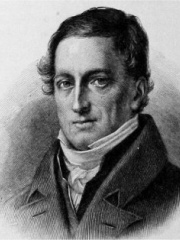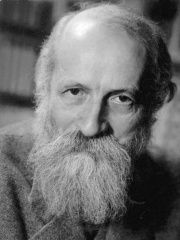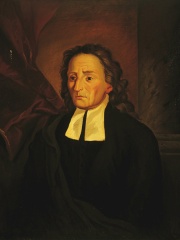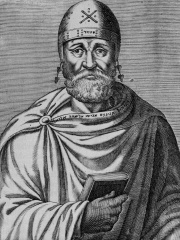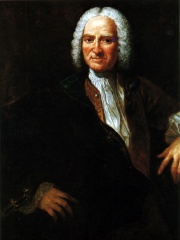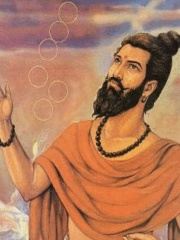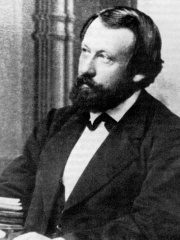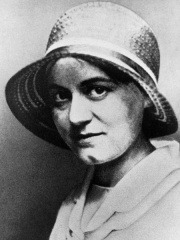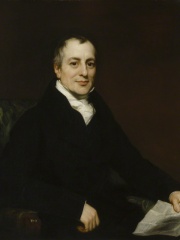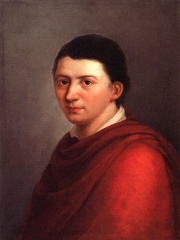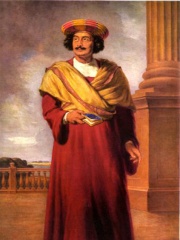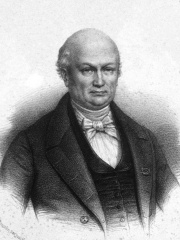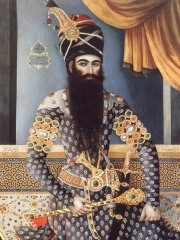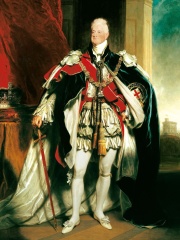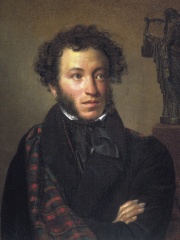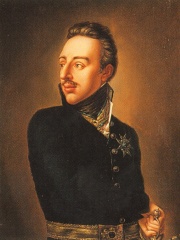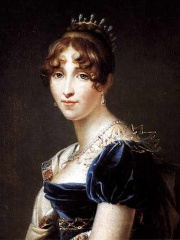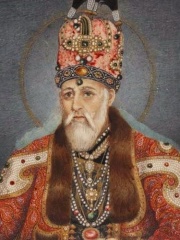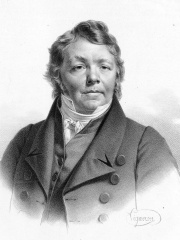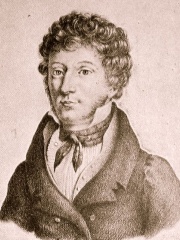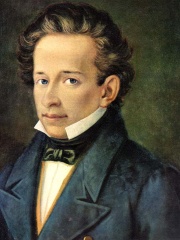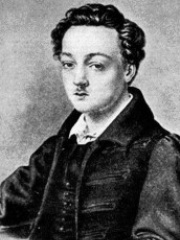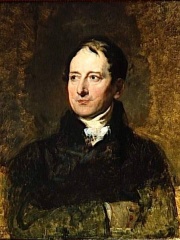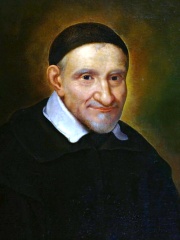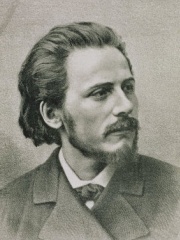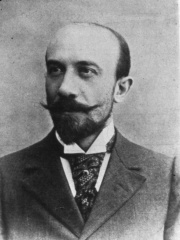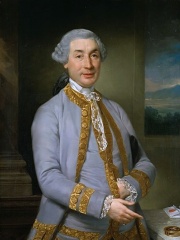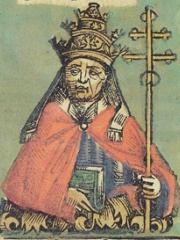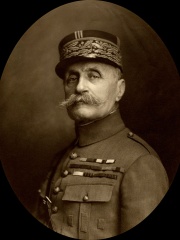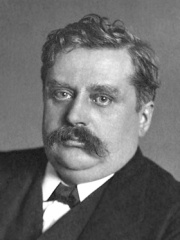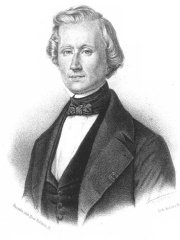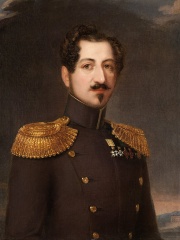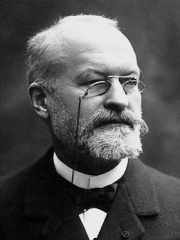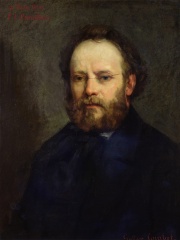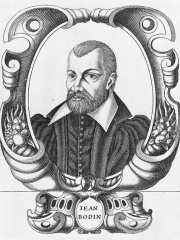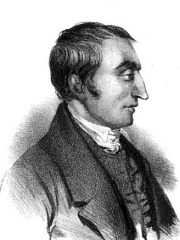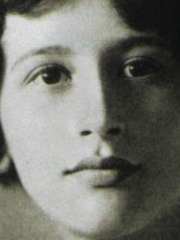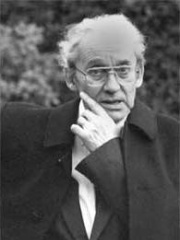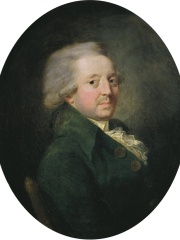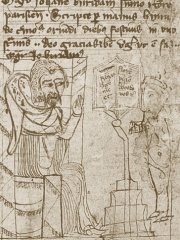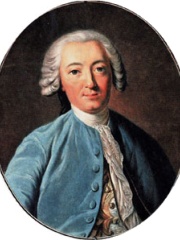Philosopher
Charles Fourier
1772 - 1837
EN.WIKIPEDIA PAGE VIEWS (PV)
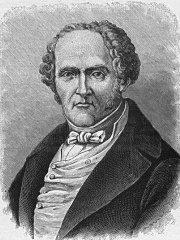
 Charles Fourier
Charles Fourier
His biography is available in 56 different languages on Wikipedia (up from 55 in 2024). Charles Fourier is the 139th most popular philosopher (down from 122nd in 2024), the 299th most popular biography from France (down from 261st in 2019) and the 14th most popular French Philosopher.
Charles Fourier was a French philosopher and social reformer. He is most famous for his theory of the four phases of society, which he believed were the "Asiatic," "Aquatic," "Feminine," and "Industrial."
Memorability Metrics
Page views of Charles Fourier by language
Among Philosophers
Among philosophers, Charles Fourier ranks 139 out of 1,267. Before him are Johann Friedrich Herbart, Martin Buber, Zygmunt Bauman, Giambattista Vico, Tommaso Campanella, and Philo. After him are Duns Scotus, Baron d'Holbach, Mozi, Kanada, Wilhelm Dilthey, and Edith Stein.
Most Popular Philosophers in Wikipedia
Go to all RankingsJohann Friedrich Herbart
1776 - 1841
HPI: 76.78
Rank: 133
Martin Buber
1878 - 1965
HPI: 76.75
Rank: 134
Zygmunt Bauman
1925 - 2017
HPI: 76.74
Rank: 135
Giambattista Vico
1668 - 1744
HPI: 76.67
Rank: 136
Tommaso Campanella
1568 - 1639
HPI: 76.67
Rank: 137
Philo
15 BC - 45
HPI: 76.66
Rank: 138
Charles Fourier
1772 - 1837
HPI: 76.65
Rank: 139
Duns Scotus
1265 - 1308
HPI: 76.64
Rank: 140
Baron d'Holbach
1723 - 1789
HPI: 76.63
Rank: 141
Mozi
470 BC - 391 BC
HPI: 76.56
Rank: 142
Kanada
200 BC - 160 BC
HPI: 76.49
Rank: 143
Wilhelm Dilthey
1833 - 1911
HPI: 76.39
Rank: 144
Edith Stein
1891 - 1942
HPI: 76.33
Rank: 145
Contemporaries
Among people born in 1772, Charles Fourier ranks 5. Before him are David Ricardo, Novalis, Maria Theresa of Naples and Sicily, and Friedrich Schlegel. After him are William I of the Netherlands, Ram Mohan Roy, Étienne Geoffroy Saint-Hilaire, Samuel Taylor Coleridge, Fath-Ali Shah Qajar, Louis Antoine, Duke of Enghien, and Nachman of Breslov. Among people deceased in 1837, Charles Fourier ranks 4. Before him are William IV of the United Kingdom, Alexander Pushkin, and Gustav IV Adolf of Sweden. After him are Hortense de Beauharnais, John Constable, Akbar II, Johann Nepomuk Hummel, John Field, Giacomo Leopardi, Georg Büchner, and François Gérard.
Others Born in 1772
Go to all RankingsDavid Ricardo
ECONOMIST
1772 - 1823
HPI: 80.48
Rank: 1
Novalis
WRITER
1772 - 1801
HPI: 79.08
Rank: 2
Maria Theresa of Naples and Sicily
COMPANION
1772 - 1807
HPI: 77.27
Rank: 3
Friedrich Schlegel
WRITER
1772 - 1829
HPI: 77.16
Rank: 4
Charles Fourier
PHILOSOPHER
1772 - 1837
HPI: 76.65
Rank: 5
William I of the Netherlands
POLITICIAN
1772 - 1843
HPI: 75.35
Rank: 6
Ram Mohan Roy
PHILOSOPHER
1772 - 1833
HPI: 75.03
Rank: 7
Étienne Geoffroy Saint-Hilaire
BIOLOGIST
1772 - 1844
HPI: 71.47
Rank: 8
Samuel Taylor Coleridge
WRITER
1772 - 1834
HPI: 71.21
Rank: 9
Fath-Ali Shah Qajar
POLITICIAN
1772 - 1834
HPI: 69.62
Rank: 10
Louis Antoine, Duke of Enghien
POLITICIAN
1772 - 1804
HPI: 69.31
Rank: 11
Nachman of Breslov
RELIGIOUS FIGURE
1772 - 1810
HPI: 68.47
Rank: 12
Others Deceased in 1837
Go to all RankingsWilliam IV of the United Kingdom
POLITICIAN
1765 - 1837
HPI: 86.91
Rank: 1
Alexander Pushkin
WRITER
1799 - 1837
HPI: 84.64
Rank: 2
Gustav IV Adolf of Sweden
POLITICIAN
1778 - 1837
HPI: 76.96
Rank: 3
Charles Fourier
PHILOSOPHER
1772 - 1837
HPI: 76.65
Rank: 4
Hortense de Beauharnais
COMPANION
1783 - 1837
HPI: 74.83
Rank: 5
John Constable
PAINTER
1776 - 1837
HPI: 73.86
Rank: 6
Akbar II
POLITICIAN
1760 - 1837
HPI: 73.61
Rank: 7
Johann Nepomuk Hummel
COMPOSER
1778 - 1837
HPI: 73.38
Rank: 8
John Field
COMPOSER
1782 - 1837
HPI: 72.66
Rank: 9
Giacomo Leopardi
WRITER
1798 - 1837
HPI: 71.01
Rank: 10
Georg Büchner
WRITER
1813 - 1837
HPI: 70.62
Rank: 11
François Gérard
PAINTER
1770 - 1837
HPI: 70.27
Rank: 12
In France
Among people born in France, Charles Fourier ranks 299 out of NaN. Before him are Vincent de Paul (1581), Jules Massenet (1842), Georges Méliès (1861), Carlo Buonaparte (1746), François Quesnay (1694), and Amadeus VIII, Duke of Savoy (1383). After him are Ferdinand Foch (1851), Alfred Werner (1866), Urbain Le Verrier (1811), Claude Lorrain (1600), Oscar I of Sweden (1799), and Charles Louis Alphonse Laveran (1845).
Others born in France
Go to all RankingsVincent de Paul
RELIGIOUS FIGURE
1581 - 1660
HPI: 76.87
Rank: 293
Jules Massenet
COMPOSER
1842 - 1912
HPI: 76.83
Rank: 294
Georges Méliès
FILM DIRECTOR
1861 - 1938
HPI: 76.83
Rank: 295
Carlo Buonaparte
LAWYER
1746 - 1785
HPI: 76.81
Rank: 296
François Quesnay
ECONOMIST
1694 - 1774
HPI: 76.73
Rank: 297
Amadeus VIII, Duke of Savoy
NOBLEMAN
1383 - 1451
HPI: 76.68
Rank: 298
Charles Fourier
PHILOSOPHER
1772 - 1837
HPI: 76.65
Rank: 299
Ferdinand Foch
MILITARY PERSONNEL
1851 - 1929
HPI: 76.63
Rank: 300
Alfred Werner
CHEMIST
1866 - 1919
HPI: 76.62
Rank: 301
Urbain Le Verrier
MATHEMATICIAN
1811 - 1877
HPI: 76.54
Rank: 302
Claude Lorrain
PAINTER
1600 - 1682
HPI: 76.54
Rank: 303
Oscar I of Sweden
POLITICIAN
1799 - 1859
HPI: 76.48
Rank: 304
Charles Louis Alphonse Laveran
PHYSICIAN
1845 - 1922
HPI: 76.47
Rank: 305
Among Philosophers In France
Among philosophers born in France, Charles Fourier ranks 14. Before him are Roland Barthes (1915), Pierre-Joseph Proudhon (1809), Jean Bodin (1530), Gilles Deleuze (1925), Henri de Saint-Simon (1760), and Simone Weil (1909). After him are Paul Ricœur (1913), Marquis de Condorcet (1743), Jean Buridan (1295), Julien Offray de La Mettrie (1709), Maurice Merleau-Ponty (1908), and Claude Adrien Helvétius (1715).
Roland Barthes
1915 - 1980
HPI: 80.26
Rank: 8
Pierre-Joseph Proudhon
1809 - 1865
HPI: 79.12
Rank: 9
Jean Bodin
1530 - 1596
HPI: 78.77
Rank: 10
Gilles Deleuze
1925 - 1995
HPI: 78.10
Rank: 11
Henri de Saint-Simon
1760 - 1825
HPI: 77.38
Rank: 12
Simone Weil
1909 - 1943
HPI: 76.93
Rank: 13
Charles Fourier
1772 - 1837
HPI: 76.65
Rank: 14
Paul Ricœur
1913 - 2005
HPI: 75.48
Rank: 15
Marquis de Condorcet
1743 - 1794
HPI: 75.06
Rank: 16
Jean Buridan
1295 - 1361
HPI: 75.04
Rank: 17
Julien Offray de La Mettrie
1709 - 1751
HPI: 74.94
Rank: 18
Maurice Merleau-Ponty
1908 - 1961
HPI: 74.84
Rank: 19
Claude Adrien Helvétius
1715 - 1771
HPI: 74.83
Rank: 20
